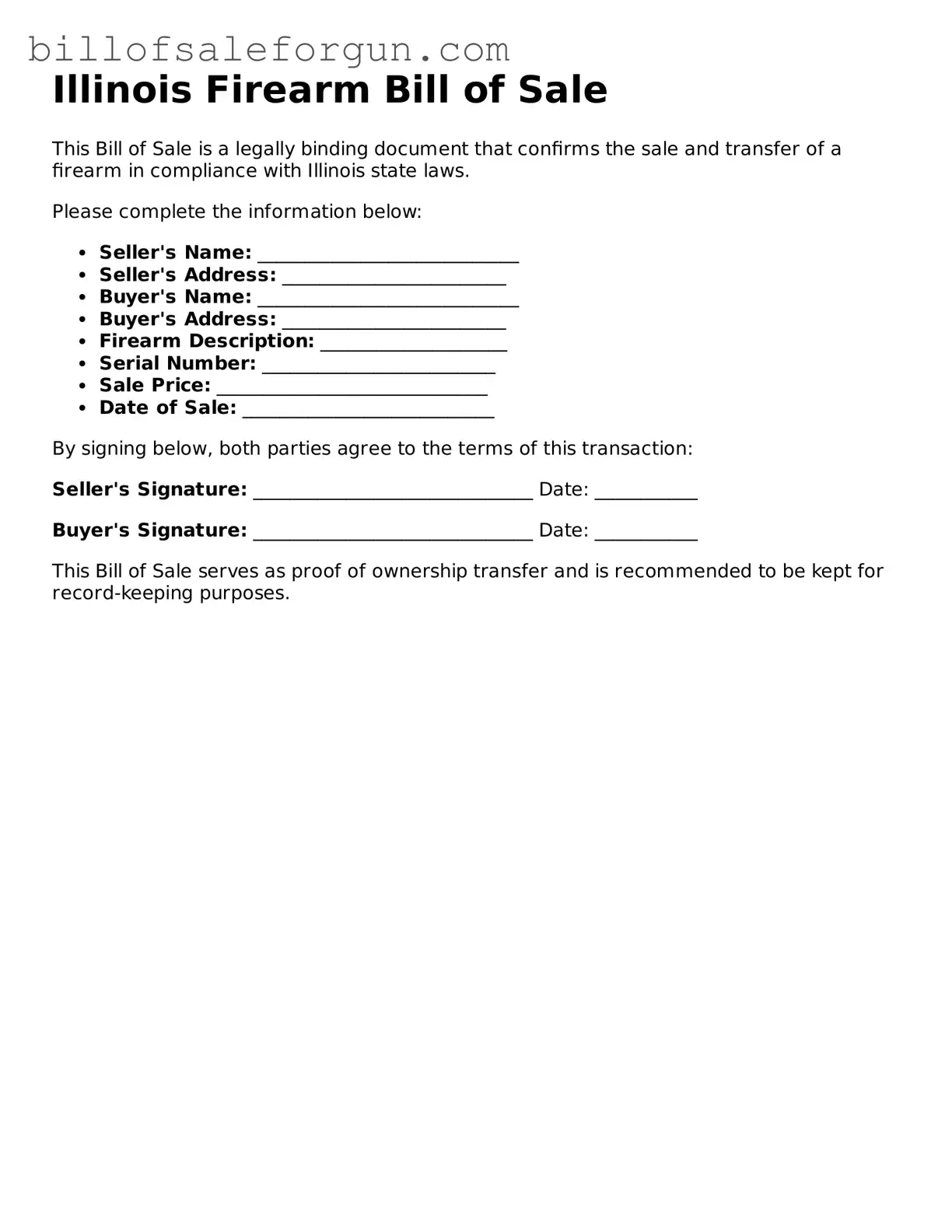Similar forms
The Illinois Firearm Bill of Sale form bears similarities to the Vehicle Bill of Sale. Both documents serve as proof of transfer of ownership from one party to another. The Vehicle Bill of Sale includes essential details such as the buyer's and seller's information, a description of the vehicle, and the purchase price. Likewise, the Firearm Bill of Sale requires the names and addresses of the involved parties, a description of the firearm, and the sale amount. These documents protect both the buyer and seller by providing a clear record of the transaction, which can be crucial for future reference or legal matters.
Another document akin to the Illinois Firearm Bill of Sale is the Personal Property Bill of Sale. This form is used to document the sale of various personal items, not just firearms. Like the Firearm Bill of Sale, it includes details about the buyer and seller, a description of the item being sold, and the transaction amount. Both forms serve to establish a legal record of ownership transfer, ensuring that both parties have a clear understanding of the terms of the sale and can refer back to the document if necessary.
The Rental Agreement also shares common features with the Illinois Firearm Bill of Sale. While it pertains to the rental of property rather than the sale of an item, both documents outline the terms of an agreement between two parties. A Rental Agreement specifies the names of the landlord and tenant, the property address, and the rental amount, similar to how the Firearm Bill of Sale outlines the seller, buyer, firearm details, and sale price. Both agreements aim to protect the rights of each party and provide a framework for the transaction, whether it be a sale or a lease.
Lastly, the Lease-to-Own Agreement is another document that mirrors the Illinois Firearm Bill of Sale in its purpose of transferring ownership, albeit in a different context. This agreement allows a buyer to lease an item with the option to purchase it at the end of the lease term. Similar to the Firearm Bill of Sale, it includes the names of the parties involved, a description of the item, payment terms, and conditions under which ownership will be transferred. Both documents serve to clarify the responsibilities and rights of each party, ensuring a smooth transaction process.
